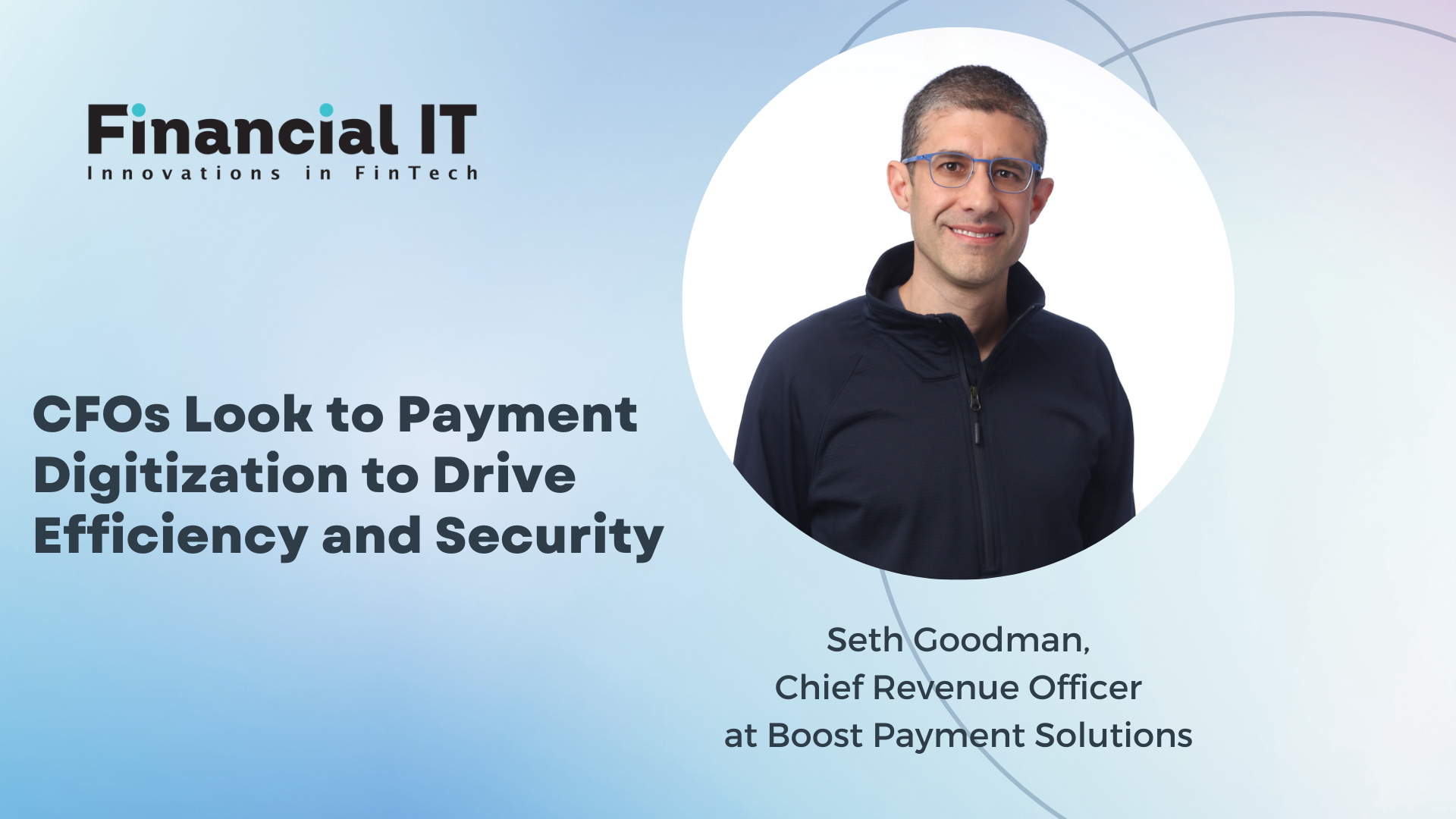CFOs Look to Payment Digitization to Drive Efficiency and Security

- Seth Goodman, Chief Revenue Officer at Boost Payment Solutions
- 18.04.2024 03:15 pm #payments #digitalization #riskmanagement
In the rapidly evolving landscape of finance, the role of the Chief Financial Officer (CFO) has become increasingly complex. CFOs are tasked not only with managing traditional financial functions but also with driving strategic initiatives and navigating their organization through digital transformations, including everything from cost efficiencies to entirely new business models. According to a recent survey by Gartner, leading digital transformation efforts in the finance function is the top area CFOs are focused on in 2024.
In fact, the digitization of payment processes has become a top priority for CFOs worldwide, as it promises to streamline operations, minimize errors, enhance cost savings, and provide robust security measures. Through digitized payment platforms, CFOs can monitor and better manage payments, track expenses, and gain valuable insights into cash flow and financial performance. This visibility empowers CFOs to make informed decisions and take proactive measures to optimize financial operations, such as negotiating better terms with vendors or identifying and eliminating inefficiencies.
If you’re still evaluating the impact of digitizing your organization’s payment processes, the following provides an overview of the key benefits:
Efficiency and Cost Savings
Manual payment processes are not only time-consuming but also prone to errors. Payment digitization streamlines these processes, automating tasks such as invoice processing, reconciliation, and fund transfers. This efficiency not only saves time but also reduces operational costs associated with manual labor and paper-based transactions.
Also, digital payment platforms offer benefits to the CFO's organization and suppliers. Faster payments, improved accuracy, and streamlined invoicing processes can strengthen supplier relationships and negotiate favorable terms. Additionally, digital payment platforms often offer incentives such as early payment discounts, further incentivizing suppliers to adopt electronic invoicing.
Data and Insights
Digital payment systems provide visibility into cash flow, allowing CFOs to make informed decisions quickly. By tracking payments and receivables, CFOs can optimize cash flow, minimize idle cash, and identify potential liquidity issues before they escalate. Furthermore, digital payment platforms generate valuable data insights that can inform strategic decision-making. CFOs can analyze payment patterns, identify spending trends, and forecast cash flow more accurately. These data-driven insights enable CFOs to optimize financial performance and drive business growth.
Greater Control, Transparency, and Risk Management
As businesses grow and expand globally, the complexity of payment processes increases. Payment digitization offers scalability and flexibility to accommodate growing transaction volumes and diverse payment methods. Whether it's cross-border payments, recurring billing, or mobile payments, digital payment platforms can adapt to evolving business needs.
Payment digitization also provides CFOs with greater control and transparency over financial transactions. They can set custom approval workflows, establish spending limits, and monitor expenses in real-time. This level of control helps CFOs enforce financial policies and mitigate unauthorized spending.
Additionally, traditional payment methods often involve sensitive financial data being transferred through various channels, increasing the risk of human error, fraud, and data breaches. Digitization offers secure electronic payment methods and advanced encryption technologies, making it more difficult for malicious actors to exploit vulnerabilities and ensure the safety of financial transactions. Additionally, digital payment platforms often come with built-in compliance features to ensure adherence to regulatory requirements.
The Cornerstone for CFO’s Agendas
In today's digital age, organizations are increasingly embracing digital transformation initiatives. Payment digitization aligns with broader digital transformation strategies, enabling CFOs to modernize financial processes and position their organizations as innovators in the digital economy ensuring they remain ahead of the competition.
Payment digitization is no longer just a convenience but a strategic imperative. By embracing digital payment platforms, CFOs can drive efficiency, mitigate risks, and unlock new opportunities for growth. As finance continues to evolve, payment digitization will remain a cornerstone of CFO's agendas, enabling them to lead their organizations into a more digitized and agile future.



















